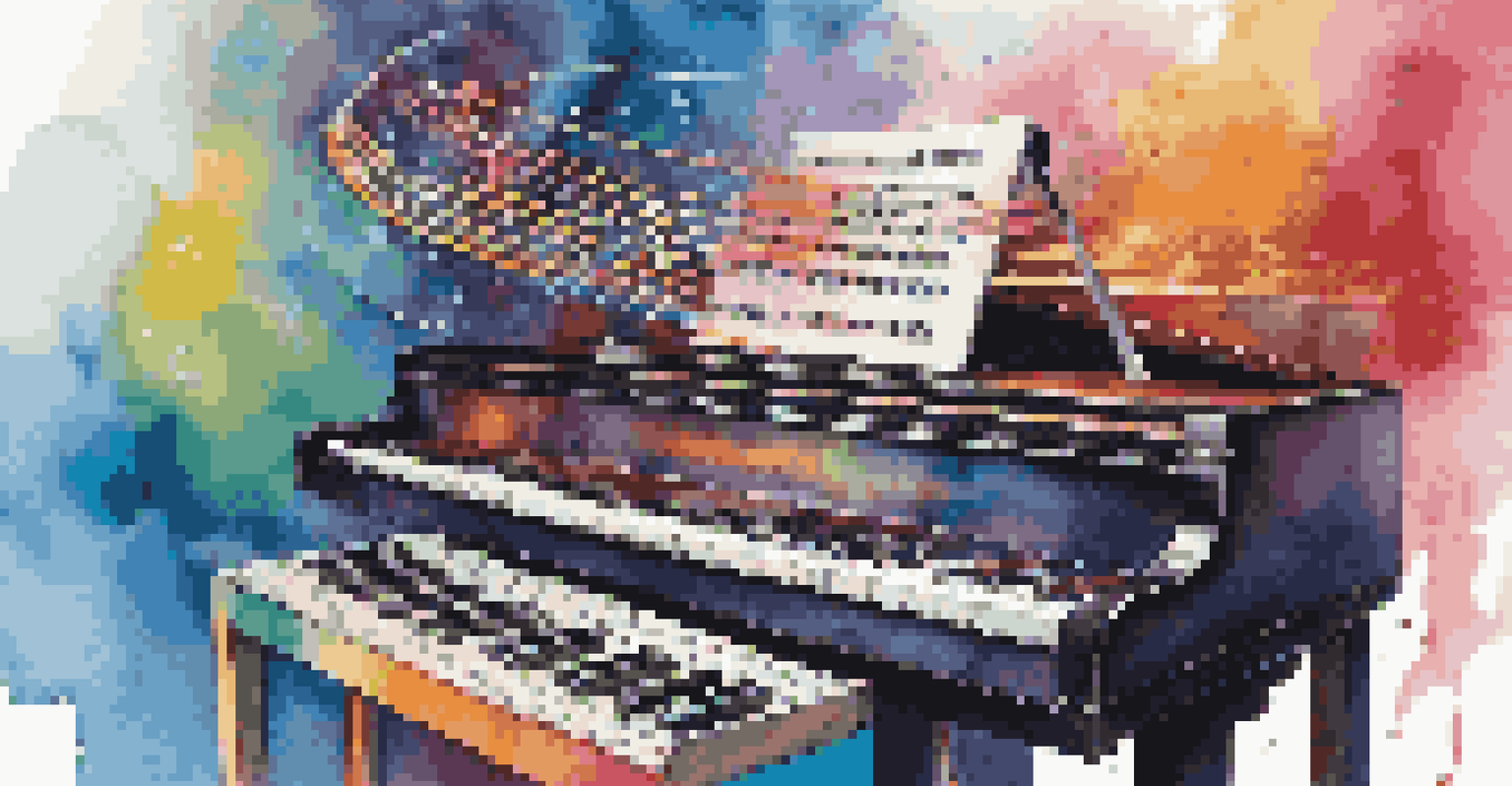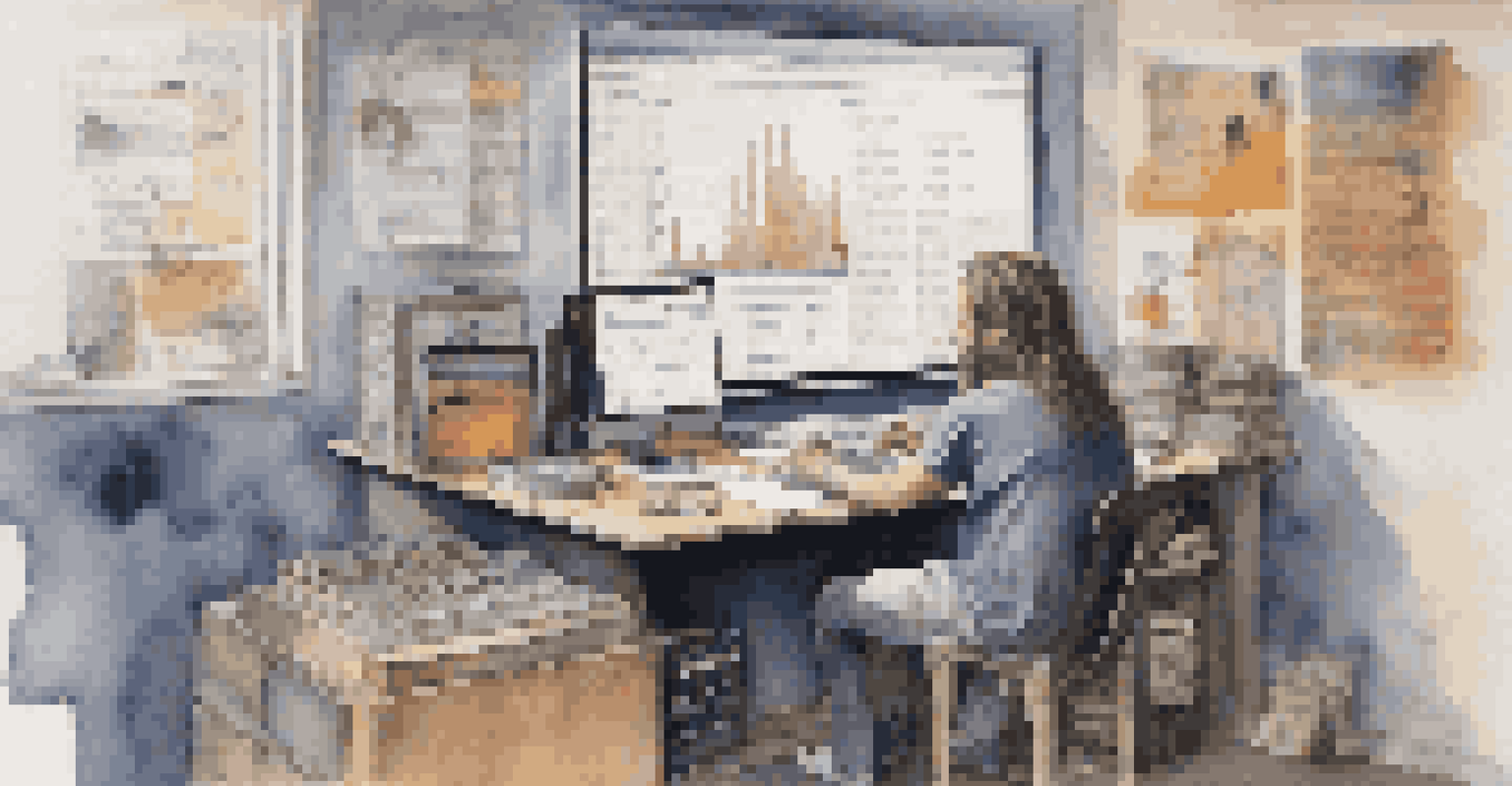The Future of AI in Music Licensing and Distribution

Understanding AI's Role in Music Licensing
Artificial Intelligence (AI) is becoming a game changer in music licensing. It simplifies the often complex process of securing rights for various music tracks. By analyzing vast databases of songs and their usage, AI can quickly identify which tracks are available for licensing, thereby saving time for artists and producers alike.
Artificial intelligence is the new electricity.
Imagine an artist needing a specific song for a new project. Traditionally, this might involve a lengthy search and negotiation process, but with AI tools, the artist can receive instant recommendations based on their needs. This efficiency not only benefits creators but also streamlines the workload for licensing agencies.
As AI continues to evolve, its ability to learn from user preferences will make the licensing process even more intuitive. This could lead to a future where finding the right music is as easy as asking a virtual assistant for a playlist.
AI and Copyright Management Simplified
Copyright management has always been a thorny issue in the music industry. However, AI is stepping in to automate tracking and enforcement of copyright laws. By using algorithms to monitor the use of music across platforms, AI can help ensure that creators receive proper compensation for their work.

For example, AI can identify unauthorized uses of songs on social media or streaming services, alerting rights holders instantly. This not only protects the artists but also allows for quicker resolution of disputes, which can often drag on for months or even years.
AI Simplifies Music Licensing
AI streamlines the music licensing process by quickly identifying available tracks, saving time for artists and producers.
The integration of AI into copyright management systems indicates a shift towards a more transparent and efficient model. This ultimately fosters a healthier ecosystem for musicians, where their rights are respected and their earnings are protected.
Streamlining Distribution with AI Technology
AI is also making waves in the distribution of music, helping artists reach their audiences more effectively. By analyzing listener data, AI can predict trends and suggest optimal distribution strategies. This means artists can focus on creating music while AI handles the marketing.
The real challenge is not whether machines think but whether men do.
Consider how streaming platforms utilize AI to curate personalized playlists. These algorithms analyze listening habits to recommend songs, ensuring that new releases from independent artists have a fighting chance against mainstream hits. This democratizes access to music and allows for greater diversity in what listeners are exposed to.
As AI becomes more adept at understanding audience preferences, the traditional barriers of music distribution will continue to fall. This could lead to a future where every artist, regardless of their background, has the tools to succeed in a competitive marketplace.
AI-Assisted Music Creation and Licensing
Beyond licensing and distribution, AI is also influencing how music is created. AI tools can assist musicians in composing and arranging music, providing new ideas and even generating full tracks. This opens up new opportunities for collaboration between human artists and AI.
For instance, imagine a songwriter struggling with writer's block. An AI program could suggest chord progressions or melodies that align with the songwriter's style, helping to spark creativity. This collaboration can lead to innovative sounds that push the boundaries of traditional music.
AI Enhances Copyright Management
AI automates copyright tracking and enforcement, ensuring that artists receive proper compensation and reducing dispute resolution time.
As AI-generated music becomes more prevalent, it raises questions about copyright and ownership. Who owns a song created partly by AI? The answers to these questions will shape the future of music licensing and the relationship between human creativity and artificial intelligence.
The Impact of AI on Independent Artists
Independent artists stand to gain significantly from AI advancements in music licensing and distribution. With AI tools becoming more accessible, these artists can manage their own licensing and distribution processes without needing a record label. This empowers them to take control of their careers.
Imagine an indie musician using AI to analyze their target audience and find the best platforms to release their music. By leveraging data, they can make informed decisions that enhance their visibility and reach. This level of autonomy was once a luxury limited to major label artists.
As the barriers to entry continue to lower, we may witness a surge of diverse voices in the music industry. AI is not just a tool for established artists; it’s a gateway for emerging talent to carve their niche in a crowded market.
Ethical Considerations in AI Music Licensing
While the future of AI in music licensing looks promising, it also brings forth ethical considerations. For instance, the use of AI to create music raises questions about the authenticity of art and the value of human creativity. It's crucial to strike a balance between leveraging technology and maintaining the essence of artistic expression.
Additionally, as AI systems learn from existing music, there is a risk of perpetuating biases present in those datasets. If not carefully managed, this could lead to the marginalization of certain genres or artists in the music landscape. Awareness and proactive measures are necessary to ensure inclusivity.
AI Empowers Independent Artists
With accessible AI tools, independent artists can manage licensing and distribution, gaining greater control over their careers.
Engaging in conversations about these ethical dilemmas is essential as the industry evolves. By doing so, stakeholders can work together to create guidelines that respect both artistic integrity and technological advancement.
The Future Landscape: AI and Human Collaboration
Looking ahead, the relationship between AI and human creators is likely to be one of collaboration rather than competition. As AI continues to develop, it will serve as a powerful ally for musicians, enhancing their creative processes without overshadowing their unique voices.
Imagine a world where AI acts as a creative partner, providing suggestions and insights while artists maintain full control over their vision. This could lead to a thriving ecosystem where technology and artistry coexist harmoniously, enriching the music landscape for everyone.

The key to this future lies in how we choose to integrate AI into our creative practices. By embracing the potential of AI while prioritizing human creativity, we can ensure that the music industry flourishes in ways we can only begin to imagine.